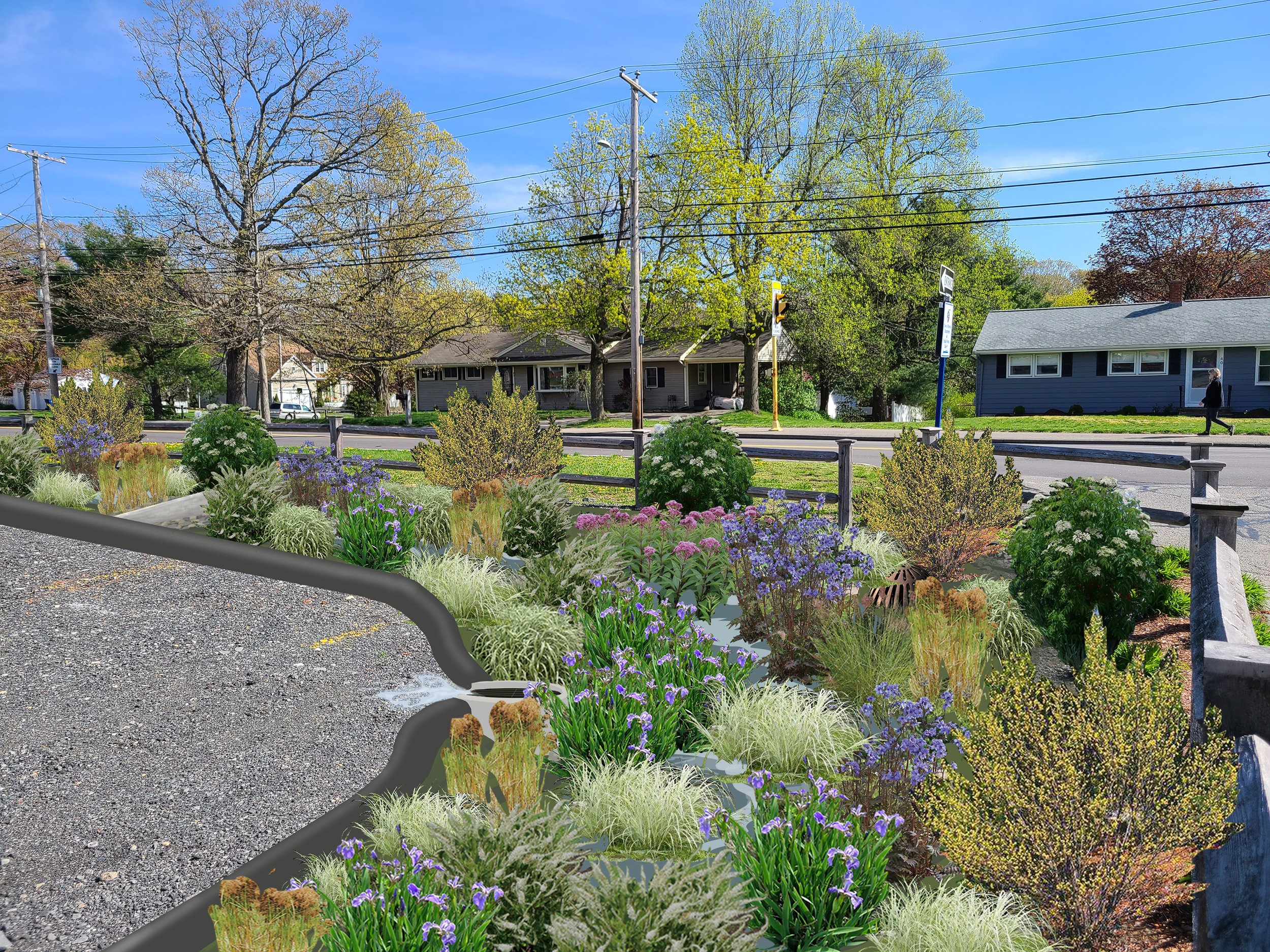New Designs for Medway Schools Will Help Reduce Stormwater Pollution in the Charles River
JUNE 6, 2023: FOR IMMEDIATE RELEASE
MEDWAY, MA––Charles River Watershed Association and Town of Medway have completed designs for green stormwater infrastructure at Medway High School and Middle School to restore river health and make Medway more resilient to climate change.
“These green stormwater infrastructure projects will help Medway bring nature back into our built environment and allow these natural processes to work for us,” says Stephanie Carlisle, Sustainability Coordinator for the Town of Medway Department of Public Services.
Stormwater pollution is one of the greatest threats to a clean Charles River. When it rains or snows, water runs off roofs, sidewalks, driveways, and roads—all the impervious surfaces that make up Medway’s built environment—picking up pollution along the way and conveying it straight into the Charles River. This polluted runoff degrades the ecosystem—contributing to invasive species growth and fueling toxic cyanobacteria blooms. Additionally, as the climate changes, Medway is expected to see more frequent, severe storms, heat waves, and drought. Impervious surfaces exacerbate these impacts––causing flooding, urban heat island effect, and depleting Medway’s groundwater which residents rely on for drinking water.
Because of these impacts, under the state’s Municipal Separate Storm Sewer System (MS4) permit, the Town of Medway is required to undertake considerable efforts to reduce stormwater pollution and reduce its phosphorus load by 880 pounds per year.
“Across the watershed, municipalities are taking unprecedented action to retain their rain and reduce stormwater pollution. The investments we make over the next fifteen years are critical for securing a clean swimmable river for the next generation,” says Max Rome, Stormwater Program Manager at Charles River Watershed Association.
Green stormwater infrastructure, or urban design solutions that mimic the natural water cycle, promises to curb stormwater pollution, build climate resilience, and restore our shared environment. The proposed plan will construct two types––rain gardens and infiltration chambers––at Medway High School and Middle School.
“Implementing green stormwater infrastructure at schools provides a unique educational opportunity. When students see rain gardens on their walk to school or near a playground, they ask questions!” says Stephanie Carlisle, Sustainability Coordinator for the Town of Medway Department of Public Services. “Inspiring young people to learn about nature and our surroundings will create the next generation of environmental stewards, which we need more than ever as we face the impacts of our changing climate.”
Together, these solutions will help the Town of Medway meet phosphorus reduction requirements, prevent flooding in extreme weather, restore groundwater to make the drinking water supply more resilient to drought, and increase local greenspaces to cool neighborhoods. The projects identified will remove 50 lbs of phosphorus and recharge over 10 million gallons of water annually, equivalent to the domestic water use of over 400 residents. Now that designs are complete, the Town of Medway is looking for opportunities to fund and build the project.
This project is possible thanks to the support of the Massachusetts Department of Environmental Protection (DEP) Section 604(b) Water Quality Management Planning Grant, an award given to municipalities and non-profit partners to kick-start projects to improve local waterways.
Charles River Watershed Association’s mission is to protect, restore and enhance the Charles River and its watershed through science, advocacy, and the law. CRWA develops science-based strategies to increase resilience, protect public health, and promote environmental equity as we confront a changing climate.


